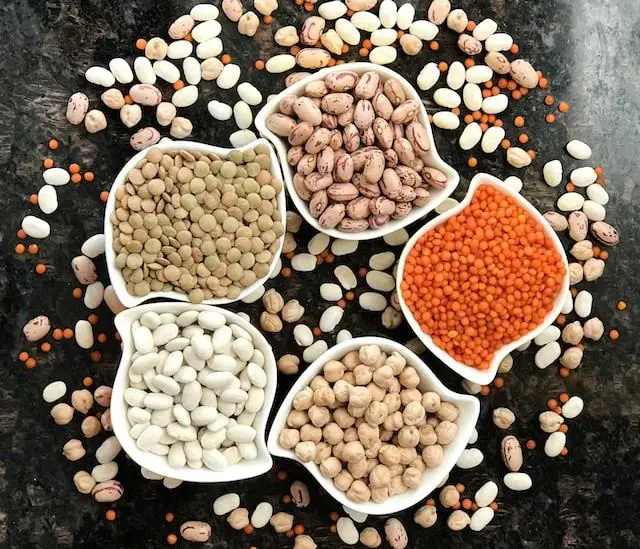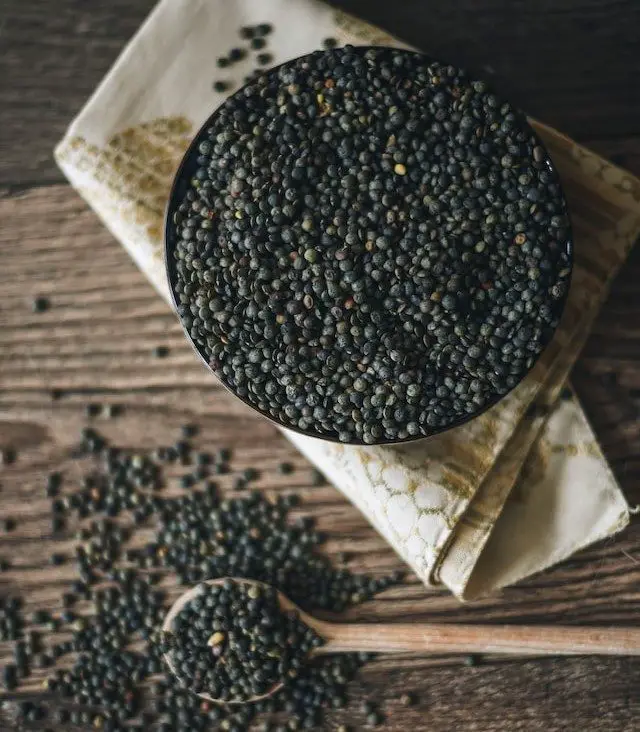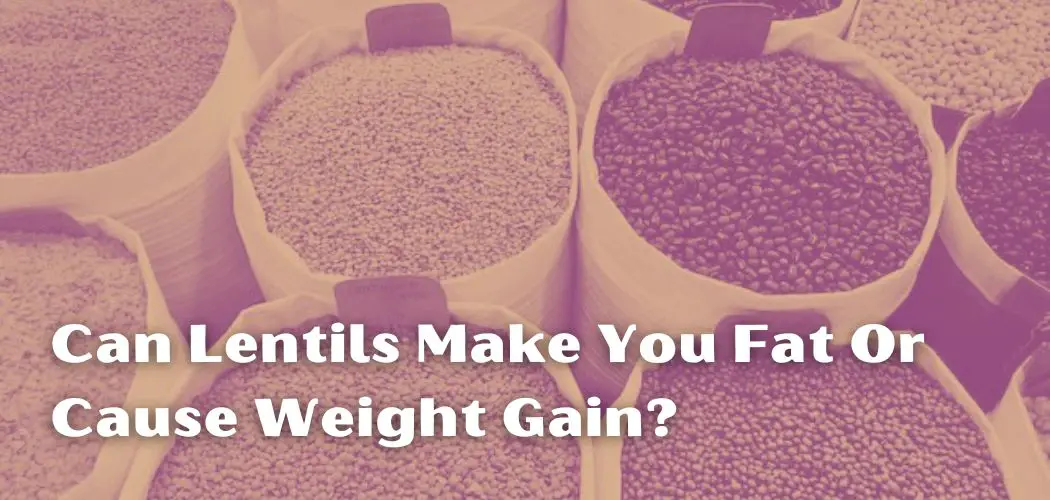Lentils are seeds from the legume family that are edible.
They are offered with or without their outer husks intact and are well-known for their lens-like form.
Although lentils are a common food staple in nations such as Turkey, Syria, Jordan, Morocco, and Tunisia, Canada now produces the most amount of lentils.
If you consume more calories than you burn via normal daily activities, you will gain weight. This indicates that excessive consumption of any food might result in weight gain.
However, lentils are rich in healthy nutrients, so they will certainly help you lose weight than cause obesity.
They are low in calories, so they won’t cause weight gain. Moreover, they are rich in fiber, protein and fat-burning chemicals!
Bread and vegetable oils are high in calories. If you want to reduce weight, you should avoid eating them with lentils.
Contents
Nutritional Information
Despite the fact that lentils are an affordable way to obtain a large amount of nutrients. They are frequently missed.
In particular, they are rich in magnesium, zinc, potassium, and B vitamins.

Lentils offer a substantial amount of protein, 25 percent of our daily requirement, making them a good meat substitute. They are also an excellent source of iron, which is sometimes missing in vegetarian diets.
Although nutrient content may vary slightly amongst lentil varieties, 1 cup (about 198 grams) of cooked lentils typically contains the following nutrients.
- Manganese comprises 43% of the DV.
- Carbs: 39.9 grams.
- Phosphorus: 28% of the Daily Value
- Fat: 0.8 grams.
- Niacin: 13% of Daily Value
- Thiamine: 28% of the Daily Value
- Fiber: 15.6 grams.
- Vitamin B6: 21% of the Daily Value
- Iron comprises 37% of the DV.
- 25% of the DV of pantothenic acid
- Folate: 90% of the Daily Value
- Magnesium: 17% of the Daily Value
- Protein: 17.9 grams.
- Zinc: 23% of the Daily Value
- Potassium: 16% of the Daily Value
- Copper: 55 percent of DV
- Calories: 230.
In addition, lentils contain a variety of phytochemicals that protect against chronic diseases such as cardiovascular disease and type 2 diabetes.
Rich in Fiber
Lentils contain fiber and protein, which help you feel full and stay full for longer, allowing you to consume fewer calories throughout the day and lose or maintain your weight.
According to expert nutritionists, folks who consume less fiber likely to be heavier in weight than those who ingest more.
Facilitate Weight Loss
In addition, lentils’ high fiber content makes them ideal for weight loss since they keep us full for longer.
A single serving of lentils, which is roughly 15.5 grams, provides approximately 55 percent of the daily fiber requirement.
Fiber regulates hunger and is essential for maintaining a healthy weight. Notably, a lack of fiber in the human body has been linked to an increased risk of obesity.
In addition, they have an extremely low glycemic index of 5. Foods with a low glycemic index help with fat loss. They decrease insulin production. However, daily insulin spikes may contribute to weight gain.
Is It Fattening?
According to nutritionists, lentils by themselves will not cause weight gain, but consuming large quantities of calorie-dense meals with this low-calorie diet will undoubtedly cause weight gain.
Above all, avoid excess vegetable oil. As this oil is one of the most fattening things you may consume daily. A teaspoon of any vegetable oil contains approximately 120 calories on average.
If you want to reduce weight, you should limit your consumption of vegetable oils to the absolute minimum. Even healthy oils like olive oil have 120 calories per tablespoon.
Varieties of Lentils
Typically, lentils are classified by color, which can range from red and yellow to green, black, and brown.
The following lentil varieties are among the most common:
Yellow: which are yellow and crimson, are cooked and split quickly. In addition to having a sweet and nutty flavor, they are excellent for creating dal.
Green: These lentils can vary in size and are typically a less expensive option for puy lentils in recipes.

Puy: These originate from the French region of Le Puy. They have the same hue as green lentils but are one-third the size and have a spicy flavor.
Black: These are small black lentils that resemble caviar almost exactly. They make an excellent salad foundation.
This is the most extensively consumed kind. They have an earthy flavor, retain their shape when cooking, and are excellent in stews and soups.
Health Benefits
Lentils and other legumes may reduce your risk of hypertension, heart disease, high cholesterol, and colon cancer.
According to specialists, the higher protein content of foods slows the absorption of carbs, which aids diabetics in controlling their blood sugar levels.
Prevent Heart Disease
Consumption of lentils is related to a reduced risk of heart disease due to its beneficial effects on multiple risk variables.
In a study of 39 individuals with obesity or overweight and type 2 diabetes, daily consumption of 1/3 cup (60 grams) of lentils boosted HDL (good) cholesterol levels and dramatically decreased LDL (bad) cholesterol and triglyceride levels.

Additionally, elevated homocysteine levels are a risk factor for cardiovascular disease. When your dietary folate intake is insufficient, these can increase. Because lentils are a rich source of folate, they may prevent the accumulation of homocysteine in the body.
Being overweight or obese raises the likelihood of developing heart disease. Consuming lentils may reduce your overall caloric consumption, contributing to weight loss or maintenance. Lentils are quite filling and appear to maintain constant blood sugar levels.
Conclusion
Due to the fact that lentils are an incomplete protein, individuals should have a supplementary protein source, such as whole grains, throughout the day.
They are among the easiest foods to make because they do not require soaking prior to cooking. Each week, you should consume at least four to five servings of 1/2 cup of beans to reap its health benefits.

